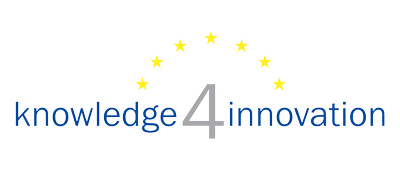november, 2017
Time
(Thursday) 09:00 - 11:00
Location
JAN 4Q2
Event Details
Open Science is good for business! Open Science’s principles of unrestricted access to data, ideas, results and materials allows multidisciplinary and cross-sector collaborations to transcend intellectual property restrictions in favor of
Event Details
Open Science is good for business!
Open Science’s principles of unrestricted access to data, ideas, results and materials allows multidisciplinary and cross-sector collaborations to transcend intellectual property restrictions in favor of speed of communication and transparency. The European Union is driving Open Science within many initiatives, such as the Innovative Medicines Initiative (IMI), and has identified Open Science as being a key component of its science policy going forward. Canada has been leading its own Open Science movement, with open science projects such as the SGC, launched in 2004, and open science institutions, such as the Tanenbaum Open Science Initiative at the Montreal Neurological Institute, launched in 2016.
In this panel, representatives from academia, industry and policy-making (Canada and European Union) will address how Open Science can help transform the existing research ecosystem, as well as thrive the creation of robust and measurable economic impacts for the society:
- How open science can drive translation of scientific discoveries into commercial revenue.
- How open science improves reproducibility of scientific research.
- How can government, policy makers, industry and institutions help create social and economic value from open science?
- What are key metrics that should be looked at in terms of economic impact?
- How could Open Science help the global community to better deal with complex challenges that have stumped the scientific and innovation communities?
Organizer
Knowledge4Innovation Forum
Host
Ivana Maletić, MEP
Speakers for this event
-
Karapiperis, Theodoros
Karapiperis, Theodoros
Head of Scientific Foresight Unit, STOA
Theo Karapiperis read Mathematical Physics at the University of Sussex, UK, and went on to earn a PhD in Physics from the Massachusetts Institute of Technology (MIT) in 1982. He worked in fundamental and applied research until 1995. He has been working at the European Parliament (EP) in Brussels since 1995, where he held posts as administrator in the Press Service, the Secretariat of STOA (Science and Technology Options Assessment, now Panel for the Future of Science and Technology) and the Secretariat of the Committee on Industry, Research and Energy (ITRE), where he dealt mostly with EU research policy. From 2005 to 2010 he was head of unit in charge of the Policy Department for Economic and Scientific Policy in the Directorate-General for Internal Policies (DG IPOL). In 2010 he became head of the unit responsible for the STOA Secretariat, which has been part of the European Parliamentary Research Service (EPRS) since 2013. His unit comprises, in addition to the STOA Secretariat, the Scientific Foresight Service created in 2014 and, since 2018, the team supporting the work of the European Science-Media Hub, which promotes networking, training and knowledge dissemination at the interface of the EP, the scientific community and the media Job title & department: Head of Unit, Scientific Foresight Unit (STOA), Directorate for Impact Assessment and European Added Value, European Parliamentary Research Service (EPRS), European Parliament
Head of Scientific Foresight Unit, STOA
-
Lapidaire, Louis
Lapidaire, Louis
Director, United Academics
After working in the finance industry in various IT related functions from 1977, Louis Lapidaire (1959) founded United Academics in 2010. During the past couple of years United Academics has been at the forefront of Open Access. The United Academics Foundation supports OA advocacy, created the Open Access Library (oalibrary.org) with 1.2 million papers available for direct download and issues the Horizon2020 Compliance notes. Louis is a board member of the Brussels' think tank “Knowledge 4 Innovation” and a founding member of the Amsterdam Open Science Data Initiative. He participated in various conferences as moderator, speaker and panelist. Louis combines his IT and entrepreneurial skills to support United Academics and participates in various strategic alliances to further the cause of Open Access, Open Science and Open Data.
Director, United Academics
-
Lee, Wen Hwa
Lee, Wen Hwa
Director, Disease Foundations Network, Strategic Alliances
Director, Disease Foundations Network, Strategic Alliances
-
Rouleau, Guy
Rouleau, Guy
Director, McGill University Montreal Neurological Institute and Hospital
Director, McGill University Montreal Neurological Institute and Hospital
Speakers
Dr. Guy Rouleau,
Director, McGill University Montreal Neurological Institute and Hospital
Wen Hwa Lee, PhD ,
Director, Disease Foundations Network, Strategic Alliances
Louis Lapidaire,
Director, United Academics
Theodoros Karapiperis,
Head of Scientific Foresight Unit, STOA
